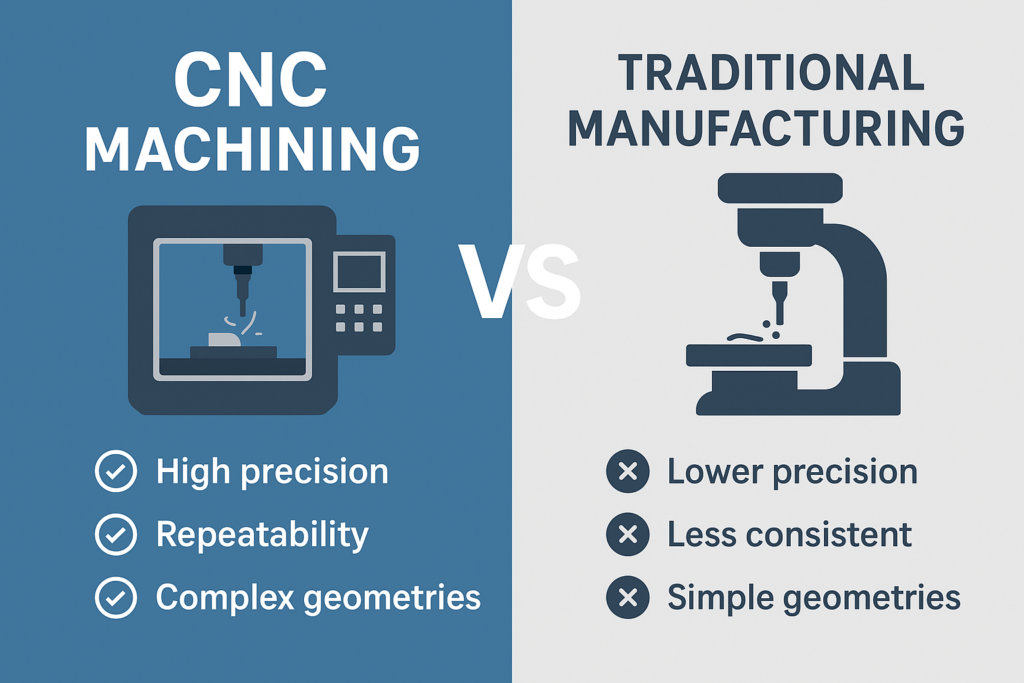In the evolving world of manufacturing, precision, speed, and efficiency play critical roles in determining success. Among the many production methods available today, CNC machining has proven to be one of the most reliable and effective compared to traditional manufacturing techniques. But what exactly makes CNC machining superior, and why should businesses consider it over conventional processes? Let’s dive into the key advantages.
1. Unmatched Precision and Accuracy
CNC machining is designed to deliver extreme precision. Modern CNC machines operate with tolerances as tight as ±0.005 mm, which is far beyond what most manual or traditional manufacturing methods can achieve. This makes CNC machining the go-to choice for industries like aerospace, medical, and defense, where even the smallest deviation can lead to failure.
2. Repeatability and Consistency
Traditional manufacturing often relies heavily on the skill of the operator, meaning results can vary from batch to batch. CNC machining, however, runs on computer-programmed instructions, ensuring that every component produced is identical. Whether you need 10 parts or 10,000, CNC machining guarantees the same level of quality and accuracy.
3. Complex Geometries Made Simple
One of the greatest strengths of CNC machining is its ability to create complex shapes and intricate geometries that would be nearly impossible—or extremely time-consuming—to produce with manual methods. Multi-axis CNC machines allow manufacturers to cut, drill, and mill from different angles, making them perfect for custom designs and intricate prototypes.
4. Higher Efficiency and Faster Production
Time is money in manufacturing. Traditional methods often involve multiple setups and adjustments, slowing down the production process. With CNC machining, once the digital design (CAD/CAM file) is uploaded, the machine can operate continuously with minimal supervision. This reduces lead times and speeds up the overall production cycle.
5. Material Versatility
CNC machines can work with a wide range of materials, including metals (aluminum, steel, titanium, brass), plastics (ABS, POM, acrylic), and even composites. This flexibility allows manufacturers to serve multiple industries with diverse requirements.
6. Reduced Human Error
Manual operations are prone to mistakes, even with experienced machinists. Since CNC machining is controlled by precise programming, human error is minimized. Operators simply monitor the process rather than manually guiding the tools.
7. Scalability for Prototyping and Mass Production
CNC machining is ideal for both low-volume prototypes and large-scale production. Businesses can quickly test designs with prototypes and then seamlessly transition to full production without sacrificing quality or consistency.
